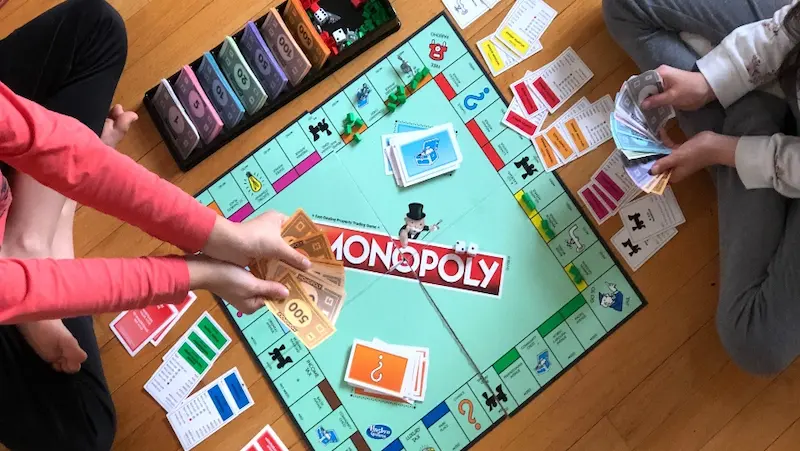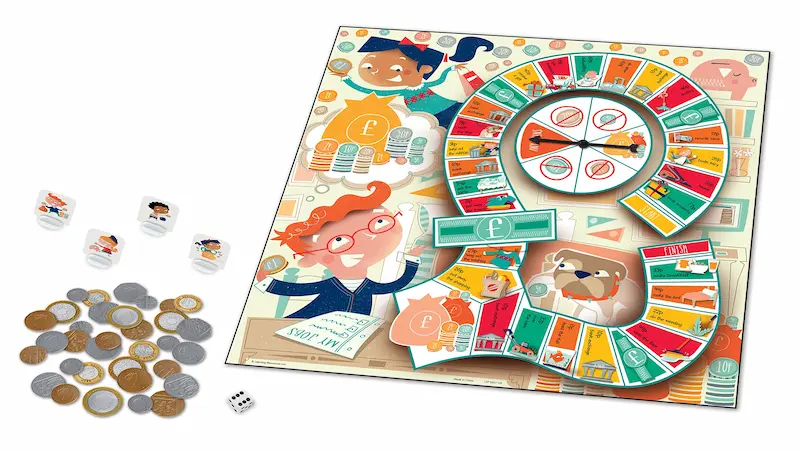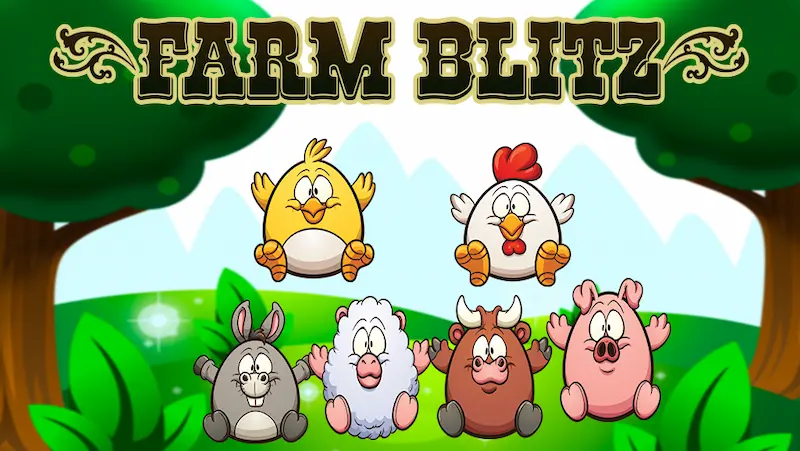In today’s fast-paced world, mastering the art of money management games for youth is more critical than ever. From budgeting to saving, and even investing, these financial skills are vital for a secure and fulfilling life. But teaching them isn’t always easy, especially for younger generations. That’s where games come into play. By turning money management into an engaging and enjoyable experience, games make it easier for people of all ages to learn essential financial skills. In this article, we’ll explore the valuable role that games play in teaching money management, and how they can help individuals develop the financial know-how needed to navigate the complexities of the modern world.
Table of contents
Age-Appropriate Games
When it comes to choosing games for kids, it’s important to pick titles that match their age and developmental stage. Games can be a great source of entertainment and education, but they need to be age-appropriate to provide the best experience. Let’s break down suitable games for different age groups.

Games for Young Children (Ages 3-6)
For the little ones aged 3 to 6, simple and fun games are the way to go. Look for games that help with early learning, coordination, and creativity. These games often involve colorful characters, basic puzzles, and interactive stories. Some great choices include:
1. Educational Apps: There are many interactive apps designed to teach colors, shapes, numbers, and the alphabet. They make learning fun and engaging.
2. Simple Puzzles: Jigsaw puzzles with large pieces are perfect for developing fine motor skills and problem-solving abilities.
3. Dress-Up Games: Online dress-up games with their favorite characters or themes can encourage creativity.
4. Adventure Games: There are story-based games with simple tasks and adventures that are perfect for this age group.
Games for Elementary School Kids (Ages 7-12)
As kids grow, their gaming interests become more diverse. This age group is ready for slightly more complex games that challenge their thinking and coordination. Here are some options:
1. Educational Games: Many games offer an educational aspect, helping kids improve their math, science, and language skills.
2. Platformers: Games that involve jumping and running can be both fun and skill-building.
3. Puzzle and Strategy Games: These games promote problem-solving and critical thinking.
4. Simulation Games: Kids can learn about managing resources and making decisions in games like SimCity or Minecraft.
Games for Teens (Ages 13-18)
For teenagers, gaming can be a way to unwind and connect with friends. They’re generally ready for more complex and immersive experiences. Here are some game genres that often appeal to teens:
1. Action and Adventure Games: Titles like The Legend of Zelda and Assassin’s Creed offer thrilling adventures with engaging stories.
2. Role-Playing Games (RPGs): Games like Skyrim or The Witcher provide in-depth narratives and character development.
3. Multiplayer Games: Online games like Fortnite, Minecraft, or Among Us let teens connect with friends and engage in cooperative or competitive play.
4. Sports and Racing Games: If your teen loves sports, games like FIFA or NBA 2K can be a great choice.
Board Games

Monopoly
Monopoly is a classic board game that has been a favorite for generations. The objective is to buy, sell, and trade properties, all while strategically managing your money. This game teaches players about property investment, negotiation, and making financial decisions. It’s a great way to introduce concepts like rent, taxes, and mortgages in a fun and interactive way.
The Game of Life
In The Game of Life, players journey through various life stages, making important decisions along the way. From education and career choices to buying a home and starting a family, this game explores the financial aspects of life. It’s a fantastic tool for understanding how different choices can impact your financial well-being.
Cashflow for Kids
Cashflow for Kids is a simplified version of the popular Cashflow 101 game designed by Robert Kiyosaki, the author of “Rich Dad Poor Dad.” It introduces children to financial concepts in a kid-friendly manner. Players learn about assets, liabilities, income, and expenses while having fun. This game is a fantastic way to plant the seeds of financial knowledge in young minds.
Moneywise Kids
Moneywise Kids is another game that helps children understand financial concepts. Players take on the roles of young adults making financial choices, including saving, spending, and investing. This game emphasizes the importance of budgeting and making wise financial decisions from an early age.
Card Games

Money Bags
“Money Bags” is a delightful card game that’s all about collecting coins. It’s a game for two to four players, and it’s suitable for kids and adults alike.
How to Play:
1. Shuffle the deck of cards and deal five cards to each player.
2. Players take turns drawing cards from the deck and collecting coins. Each card has a coin value, and your goal is to collect the most valuable coins.
3. Keep an eye out for special cards like “Thief” or “Lucky Penny” that can change the game.
4. The player with the most valuable coins when the deck runs out wins the game.
“Money Bags” is simple, fast-paced, and a great way to teach kids about counting and strategy while having a blast.
The Allowance Game
“The Allowance Game” is another fantastic card game that combines fun with financial education. It’s a game for two to four players, making it perfect for family game nights.
How to Play:
1. Start by shuffling the deck of cards and handing out a hand of five cards to each player.
2. The goal of the game is to be the first to save $20 in your piggy bank.
3. Collect cards that represent money, like quarters, dimes, and pennies.
4. Look out for action cards like “Income” and “Expense” that can help or hinder your progress.
5. Plan your spending wisely and be the first to reach that $20 goal!
“The Allowance Game” is a great way to teach kids about money management and saving, all while having a fun and educational time with the family.
Online and App-Based Games

Farm Blitz:
If you have a soft spot for cute animals and farming adventures, Farm Blitz is the game for you. Plant crops, raise animals, and build your dream farm in this delightful and addictively fun game. Tend to your virtual animals and watch your farm thrive. It’s a great way to unwind and escape to the countryside, even if it’s just for a few minutes.
P2K Money:
Are you interested in personal finance and budgeting? P2K Money is a fantastic game that helps you hone your money management skills. Create a budget, track expenses, and learn how to save and invest wisely. It’s not just a game; it’s a practical tool that can help you make smarter financial decisions.
Money Island:
Money Island combines entertainment and education by taking you on a thrilling treasure hunt. Join young explorers on an adventure to find hidden treasures, while learning important financial lessons along the way. It’s a great way to introduce financial games for students concepts to kids and adults alike in a fun and interactive manner.
Financial Football:
For those who enjoy both sports and financial learning, Financial Football is a perfect match. This interactive game lets you choose your favorite NFL team and compete in a football match where financial knowledge is the key to scoring. Answer questions correctly to advance and win the game. It’s a touchdown for activities for financial literacy!
Learning Objectives and Skills

Saving and Budgeting
Saving and budgeting are the building blocks of financial stability. Saving involves setting aside a portion of your income for future needs or emergencies. It’s like paying yourself first. Budgeting, on the other hand, is creating a plan for your money. Track your income and expenses to ensure you’re not spending more than you earn. By mastering these skills, you’ll be better prepared for unexpected expenses and future goals.
Investing and Risk Management
Investing might sound complicated, but it’s all about making your money work for you. It’s like planting a financial seed that can grow over time. Understanding risk is crucial in this area. Diversifying your investments and being aware of potential risks can help you protect and grow your wealth. It’s not about getting rich quickly, but about making your money grow steadily over time.
Financial Decision Making
Financial decision-making involves making choices about your money that align with your goals and values. It’s not just about numbers; it’s about your financial well-being. Learn to evaluate your options, prioritize your goals, and make informed choices. From deciding between renting and buying a home to choosing the right credit card, these decisions have a big impact on your financial future.
Entrepreneurship and Business Skills
Entrepreneurship and business skills can open up opportunities to create your own income streams. Whether you dream of starting your own business or simply want to be more resourceful in your career, these skills are invaluable. They involve understanding market trends, managing resources, and taking calculated risks. Even if you don’t plan to become an entrepreneur, having a grasp of these skills can be a significant asset in today’s dynamic job market.
Parental Involvement

Participating in Game Nights
One of the most straightforward ways to be involved in family game nights is by participating. Yes, we mean playing the games alongside your kids. Whether it’s classic board games, card games, or even video games, joining in on the fun can be a fantastic way to connect with your children.
When parents play, they not only create lasting memories but also foster a sense of togetherness and unity. The laughter, competition, and shared excitement all contribute to a sense of family closeness that goes beyond the game itself.
Facilitating Discussions After Gameplay
After the game is over, take a moment to facilitate a discussion with your kids. Ask them about their favorite parts of the game, what strategies they used, and how they felt during the game. This post-game chat can open the door to valuable life lessons.
Discussing sportsmanship, teamwork, and the importance of both winning and losing gracefully can be valuable life lessons for kids. It’s also an opportunity to let your children express themselves and share their thoughts.
Cost and Accessibility

Free and Low-Cost Game Options
Gone are the days when gaming required shelling out big bucks. There’s a treasure trove of free and low-cost games available, catering to all tastes and preferences. Whether you’re into action-packed shooters, strategy games, or casual puzzles, you’re sure to find something that fits your budget.
Many game developers now offer “freemium” models where you can download and play the game for free, but have the option to make in-game purchases if you want to enhance your experience. Keep an eye out for special promotions and sales, which often make even premium games more affordable.
Availability on Various Platforms
Gaming isn’t limited to just one platform anymore. You can play games on your PC, gaming console, smartphone, or even your tablet. The flexibility of choosing where and how you want to game is a significant advantage in today’s gaming landscape.
Major titles are often released on multiple platforms, so you can pick the one that suits you best. Whether you’re a console enthusiast, a PC gamer, or prefer gaming on the go, there’s a gaming platform for you.
Setting Up a Game Night

Organizing Money Management Game Nights
Money management games are not only entertaining but also educational. They can teach valuable lesson plans on money about budgeting, saving, and making wise financial decisions. Here’s how you can set up a money management game night:
1. Choose the Right Games: Look for board games or card games that involve finances. Classics like Monopoly or newer games like Cashflow or The Game of Life are great options.
2. Set the Rules: Before you start, make sure everyone understands the rules of the game. This will ensure a fair and enjoyable experience.
3. Create a Budget: Give each player a set amount of play money to start. This mimics real-life budgeting and financial planning.
4. Discuss the Lessons: After the game, take some time to discuss the financial lessons learned. Share tips and insights on money management activities for youth to make the experience educational.
Encouraging Family Participation
Family game nights are a wonderful way to strengthen the bonds between family members. Here are some tips to encourage everyone to participate:
1. Choose Inclusive Games: Select games that are suitable for all ages and skill levels. This way, everyone can join in, from kids to grandparents.
2. Designate a Game Night: Make it a routine. Set a specific day or evening each week or month for game night, so everyone can plan for it and look forward to it.
3. Rotate Game Choices: Let different family members choose the games each time. This ensures everyone gets a chance to play their favorites.
4. Create a Comfortable Setting: Make sure you have enough space and comfortable seating for everyone. Provide snacks and drinks to keep everyone energized and hydrated.
5. Encourage Participation: Be enthusiastic and inclusive. Encourage quieter family members to join in and ensure that everyone has a chance to take part.
Promoting a Lifelong Money-Smart Mindset

Building Financial Confidence
Financial confidence is the secret sauce for managing your money effectively. It’s not about being a financial expert, but about feeling secure and informed when making financial decisions. Here’s how you can boost your financial confidence:
1. Budgeting: Start by creating a simple budget. Know where your money comes from and where it goes. This small step can be a big confidence booster.
2. Saving: Make saving a habit. Whether it’s for emergencies, a dream vacation, or retirement, setting money aside regularly will help you feel more in control of your finances.
3. Setting Goals: Define clear financial goals, both short-term and long-term. Achieving these goals will boost your confidence and motivate you to keep going.
4. Seek Advice: Don’t hesitate to consult a financial advisor or mentor if you need guidance. Learning from others’ experiences can be incredibly valuable.
Continued Learning Beyond the Basics
Financial knowledge is like a river, constantly flowing and evolving. Sticking with the basics won’t cut it in the long run. Here’s how you can continue learning about money matters:
1. Read Books: There are plenty of beginner-friendly finance books that cover a wide range of topics. Start with one that piques your interest.
2. Online Courses: Many websites offer free or low-cost courses on personal finance. These can help you dig deeper into specific financial areas.
3. Stay Informed: Keep up with financial news and trends. Understanding the world’s financial landscape will help you make better-informed decisions.
4. Invest Wisely: If you’re interested in investing, learn about different investment options and strategies. Start with small investments and gradually expand your portfolio as you become more comfortable.
5. Share and Discuss: Engage in conversations about money activities for preschoolers with friends and family. They might have insights and experiences to share that can broaden your financial horizons.
Conclusion
In conclusion, money management games have proven to be a powerful tool for empowering today’s youth. These engaging and interactive games not only teach essential financial skills but also instill a sense of responsibility and confidence in handling money. By making learning about finances fun and accessible, we are equipping the next generation with the knowledge and skills they need to navigate the complex world of personal finance successfully. As we continue to invest in such educational tools, we pave the way for a financially savvy and secure future for our youth.
To get your hands on more educational and free resources on coding for kids, robotics for kids, financial education for kids, etc., do check out the BrightCHAMPS Page now!
To get your hands on more such articles, educational content, and free resources on coding for kids, robotics courses, game development, etc., check out the BrightCHAMPS Blog Page now!
Frequently Asked Questions
A1. Money management games can make learning about finances fun and practical. They help kids grasp budgeting, saving, and decision-making while having a good time.
A2. Look for games with age recommendations on the box or in the app store. Start with simple games for younger kids and progress to more complex ones as they grow.
A3. Yes, many free or low-cost money management games are available. Check app stores, websites, or libraries for budget-friendly options.
A4. Yes, many money management games are online or available as mobile apps. You can find them on iOS, Android, and websites, making it easy to access and play.
A5. Read game descriptions and reviews to see if they cover the financial topics you want to teach. Choose games that match your educational goals.


 We are an army of educators and passionate learners from BrightChamps family, committed to providing free learning resources to kids, parents & students.
We are an army of educators and passionate learners from BrightChamps family, committed to providing free learning resources to kids, parents & students.












